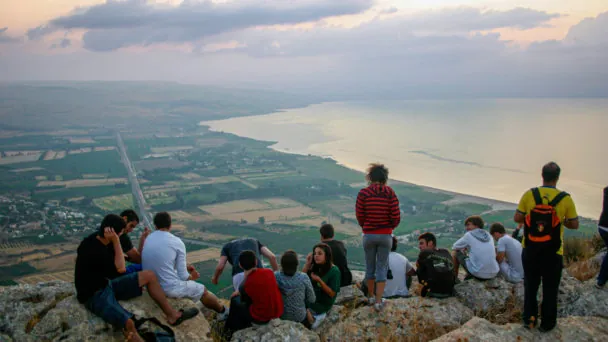Israel erlebte seine erste Intifada-Hölle, berüchtigt für seine Selbstmordattentate und Morde. Der islamische Aufstand rückte 1987 in den Mittelpunkt, und die Israelis hatten das Gefühl, im Schatten des Tals des Todes zu stehen. Jahrelang lebten wir als Nation von Tag zu Tag im Überlebensmodus. PLO-Chef Jassir Arafat hetzte seine Selbstmordattentäter und kreativen Killer auf - und man wusste nie, wo sie auftauchen würden. Es war ein bisschen wie mit dem Coronavirus von heute. Die Gefahr war unsichtbar - bis sie zuschlug.
Nur 15 Jahre zuvor hatte die israelische Regierung das Jibril-Abkommen unterzeichnet und 1 150 palästinensische Terroristen im Austausch gegen drei israelische Soldaten freigelassen. Viele dieser Terroristen bildeten das Rückgrat der Führung der ersten Intifada.
Aus unerfindlichen Gründen wird in der Geschichte festgehalten, dass die erste Intifada sieben Jahre dauerte. Die Realität für diejenigen unter uns, die sie miterlebt haben, war, dass Terroristen uns etwa 20 Jahre lang mit Bomben und Messern und Autos und Traktoren angegriffen haben. Während dieser ersten sieben Jahre wurden jedoch 233 israelische Zivilisten und 60 IDF-Soldaten allein durch Bomben getötet. Und 1.400 israelische Zivilisten und 1.700 Soldaten wurden verwundet.
Das war nur der Anfang. Arafats Ziel war es, das Leben der Israelis unerträglich zu machen. Der Terror konnte überall zuschlagen. Die meisten Menschen hörten auf, Bus zu fahren, denn diese waren besonders gefährdet. Wir fuhren unsere Kinder überall hin. Das eigene Zuhause war der sicherste Ort, an dem man sein konnte.
Als Yitzhak Rabin 1992 auf dem Höhepunkt der ersten Intifada zum Premierminister gewählt wurde, begann er mit der Umsetzung eines Plans zur Beendigung der Gewalt und zur Schaffung eines palästinensischen Staates. Sein Plan basierte auf einem Friedensschluss mit Jassir Arafat. Rabins Team verhandelte heimlich mit ihm und Rabin unterzeichnete 1993 das berüchtigte Oslo-I-Abkommen. Die Gewalt war so stark, dass sogar Israelis, die überzeugte Zionisten waren, darüber nachdachten, ob sich eine Teilung des Landes nicht lohnen würde, wenn sie ein Ende der Gewalt mit sich brächte.
Aber für die kleine israelische Gemeinde der Gläubigen war dies emotional eine schwierige Zeit. Wir, die wir an die Bibel glaubten, wussten, dass Gott dem jüdischen Volk dieses kleine Stück Land als ewigen Bund gegeben hatte. Und nun war unser eigener Premierminister entschlossen, "die Berge Israels" zu übergeben, um eine islamische Nation zu schaffen. Er erklärte sogar, die Bibel sei nicht Israels Eigentumsurkunde.
Am Ende war alles umsonst. Das Oslo-Abkommen war ein Geben und kein Nehmen. Es löste sich langsam auf, und wir mussten weiterhin unter diesen Angriffen leiden, bis unsere Regierung schließlich eine Mauer baute, die die palästinensische Bevölkerung von Israel trennte. Aber das sollte erst viel später geschehen.
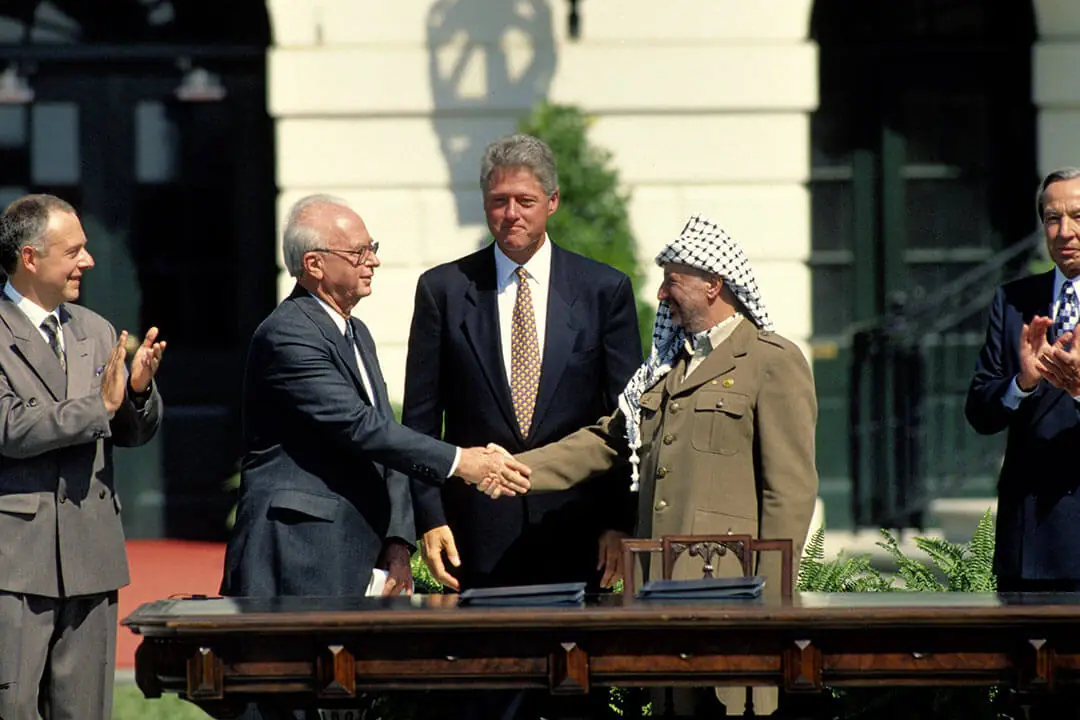
Der israelische Premierminister Yitzhak Rabin und PLO-Chef Jassir Arafat schütteln sich nach der Unterzeichnung des ersten Osloer Abkommens mit Präsident Bill Clinton im Jahr 1993 die Hände. Kredit: Shutterstock/Mark Reinstein
Unseren Platz finden
1991, nach unserem zweijährigen Aufenthalt in den USA, begannen wir, jede Woche zu einer Gemeinde in Jerusalem zu fahren, um unseren Plan fortzusetzen, in die Gegend von Jerusalem zu ziehen (siehe MIR vom April 2021 Der Krieg, die Einwanderer und das Ausbildungszentrum). Als wir jedoch feststellten, dass wir in Ramat HaSharon, einem Vorort von Tel Aviv, bleiben würden, begannen wir, nach einem Ort für Gottesdienste in Tel Aviv zu suchen. Es gab mehrere großartige Pioniergruppen in unserer Gegend, und wir entschieden uns schließlich für eine geisterfüllte Gemeinde in Jaffa, die von David Lazarus geleitet wurde.
Es herrschte eine starke Präsenz und die Freiheit des Gottesdienstes. Die Gottesdienste wurden in mehrere Sprachen übersetzt, um den vielen neuen Einwanderern entgegenzukommen. David war auch ein enthusiastischer Ermutiger für unsere Berufung zu evangelisieren und zu lehren. Arni und Yonit Klein waren vor kurzem nach Israel eingewandert und wurden unsere engen Mitarbeiter. Gemeinsam träumten und planten wir kreative Wege, um die Verlorenen von Tel Aviv zu erreichen.
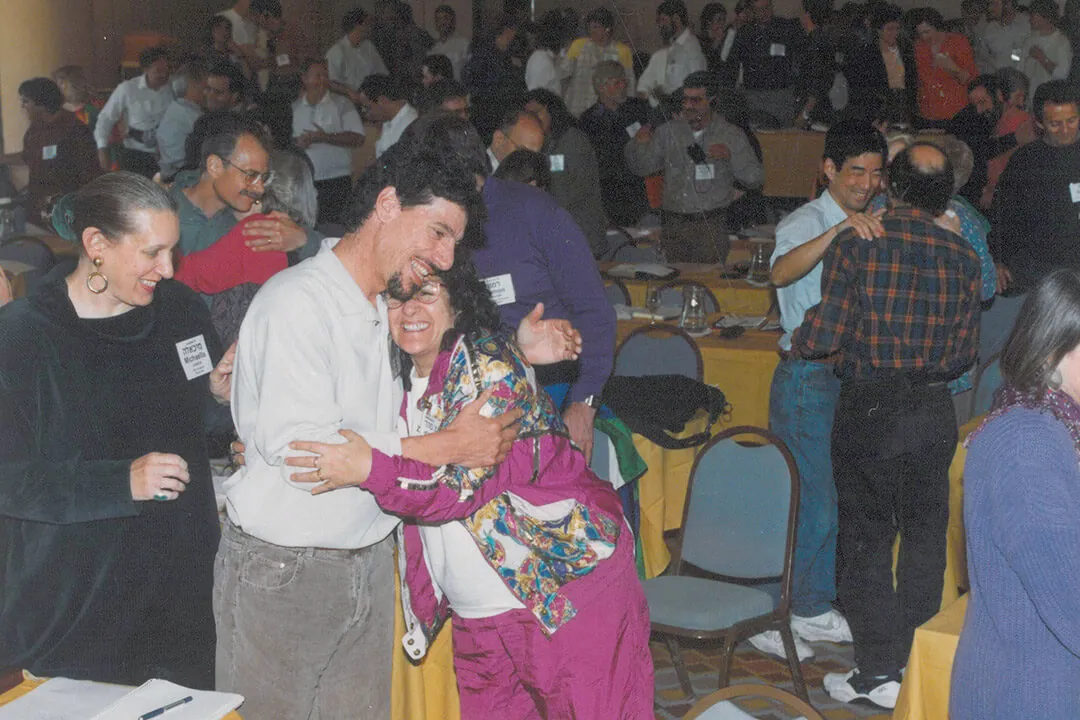
Führungskräfte aus dem ganzen Land genießen die Gemeinschaft und knüpfen neue Beziehungen
Im Dienste unserer messianischen Pioniere
Trotz unserer allgegenwärtigen Last für die Verlorenen konnten wir sehen, dass es innerhalb der örtlichen messianischen Gemeinschaft Bedürfnisse gab. Wir kannten viele der Leiter und sahen ihre leidenschaftlichen Bemühungen um den Aufbau des Reiches Gottes. Wir beteten für Möglichkeiten, der Gemeinde in Israel zu dienen, als uns eine wunderbare Überraschung aus Kalifornien in den Schoß fiel. Im Jahr 1994 bot ein visionärer Pastor, Tom Barkey, an, auf einer dreitägigen Konferenz in Israel zu lehren. Er bat uns, alle Pastoren und Leiter in Israel zusammen mit ihren Ehepartnern in ein schönes Hotel in Herziliya, nördlich von Tel Aviv, einzuladen, und zwar auf eigene Kosten!
Einige der örtlichen Leiter waren noch nie in ihrem Leben in einem Hotel gewesen! Tom Barkey sprach hundert Leitern und ihren Ehefrauen aus dem Herzen, darunter eine wunderbare Vertretung von Leitern aus der arabischen christlichen Gemeinschaft. (Dies war der Beginn unserer engen Beziehungen zu vielen arabischen Pastoren).
Nach den Rückmeldungen zu urteilen, war die Konferenz ein großer Erfolg. Der Hunger, den wir in den Gesichtern unserer israelischen Brüder und Schwestern sahen, ließ uns erkennen, dass Gottes Pioniere in Israel und insbesondere die messianische Führung, die oft gegen große Widerstände ankämpften, wenig Gelegenheit hatten, Ermutigung und geistliche Nahrung zu erhalten.
Diese gläubigen Führungskräfte nahmen alles in sich auf, ruhten sich aus, empfingen das Wort Gottes und hatten eine wunderbare Gemeinschaft. Sie kamen aus vielen verschiedenen Überzeugungen und theologischen Perspektiven, und viele schlossen auf dieser Konferenz neue und dauerhafte Freundschaften.
Bei den folgenden Konferenzen, die wir veranstalteten, war Pastor Jack Hayford, ebenfalls aus Kalifornien, zwei Jahre hintereinander der Hauptredner. Pastor Jack übernahm die Hälfte der Kosten, und Maoz brachte die andere Hälfte auf. Nach dem herzzerreißenden Verlust unserer eigenen Gemeinde, als wir in den USA waren, weil unser Sohn sonderpädagogisch betreut werden musste, waren wir sehr ermutigt, den verbindenden Einfluss zu sehen, den diese Konferenzen hatten.
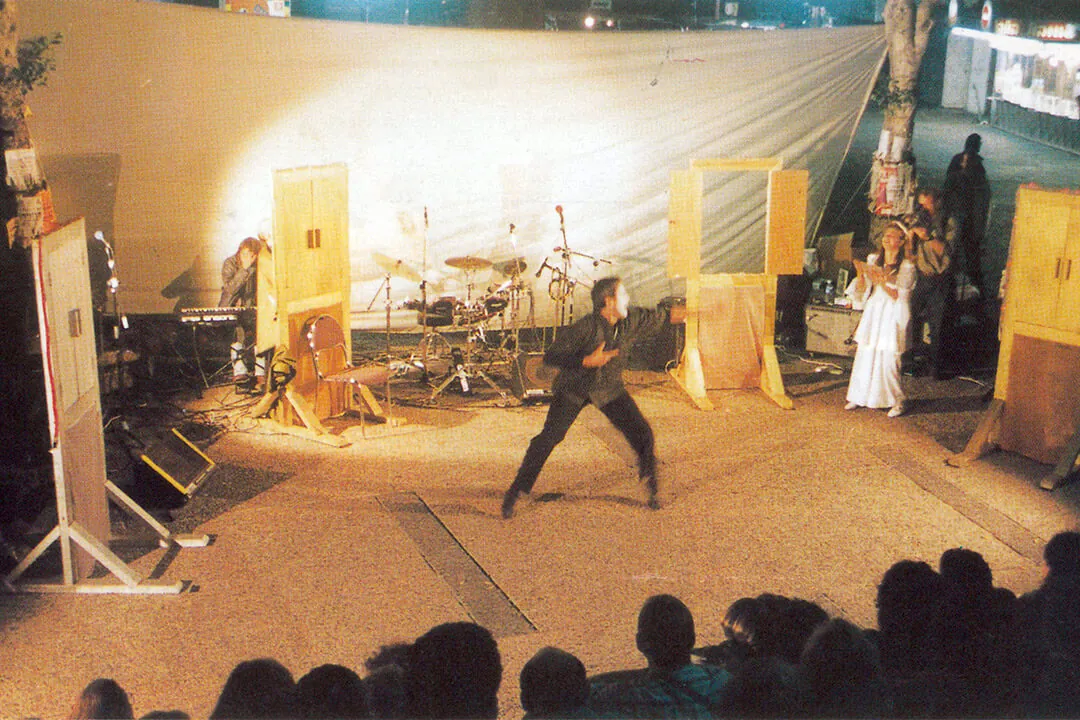
Ayal Frieden mimt die Rolle des "Suchers" in der Öffentlichkeitsarbeit von Tel Aviv
To Russia with Love
Im Herbst 1994 wurden wir nach Russland eingeladen, wo Jonathan Bernis große messianische Evangelisationskonzerte veranstaltete, bei denen Zehntausende von Juden und Nicht-Juden zum Herrn kamen. Er veranstaltete Konzerte in vielen russischen Städten, und mindestens 250.000 Menschen folgten der Einladung, öffentlich zu stehen und zu beten. Aus den Nachfasskarten ging hervor, dass 50 % jüdisch waren oder mindestens einen jüdischen Großelternteil hatten. Jonathan verstand, dass er, um diese unglaubliche Erweckung aufrechtzuerhalten, Modelle für die Jüngerschaft schaffen musste.
Seine erste Bibelschule wurde in St. Petersburg mit 108 Studenten eröffnet. (Viele dieser neuen jüdischen Gläubigen machten später Alija nach Israel und wurden zu führenden Persönlichkeiten der messianischen Bewegung).
Jonathan lud uns ein, in seiner brandneuen Bibelschule zu unterrichten. Wir verbrachten eine Woche dort und gaben ihnen alles, was wir konnten. Wir lehrten sie die grundlegenden Wahrheiten der Bibel - von Abraham über Mose bis zu Jeschua, dem Messias! Als meine Mutter (Freda Lindsay) von den Ereignissen erfuhr, rief sie uns an und bestand darauf, dass wir für eine Weile nach Russland ziehen sollten, um die riesige Zahl neuer Gläubiger in der Jüngerschaft zu unterstützen, da zu diesem Zeitpunkt eine gewaltige Ernte stattfand.
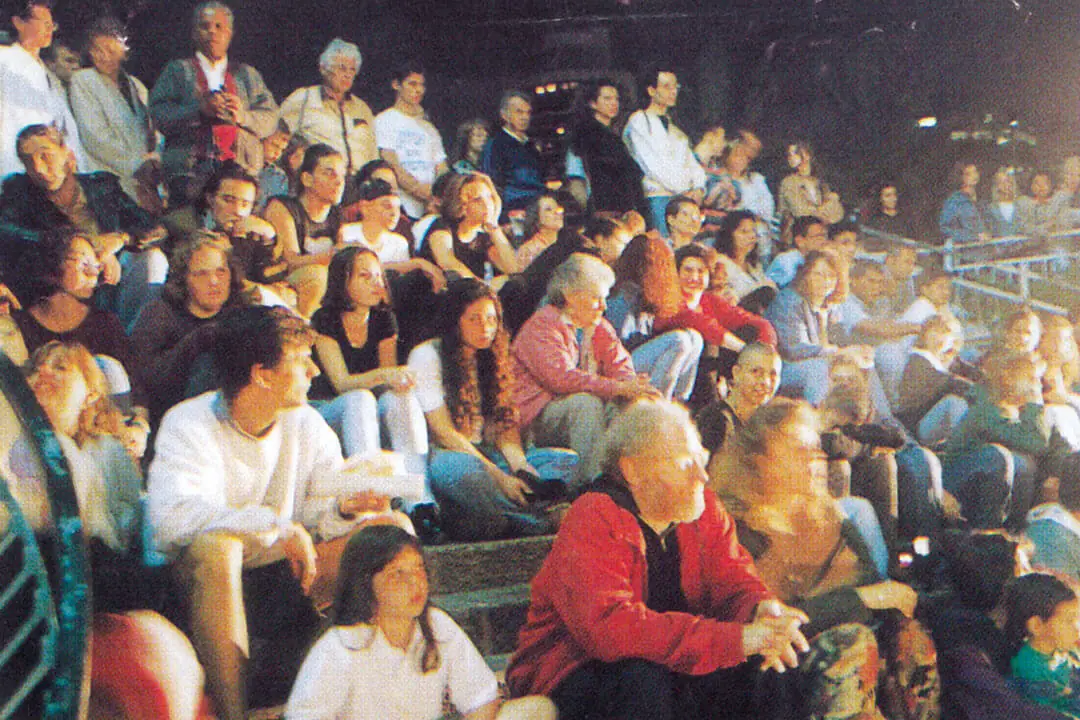
Ein Teil der überfüllten Treppe in Dizengoff, wo die Israelis während der gesamten Präsentation gebannt saßen
Die verlorene Stadt Tel Aviv
Aber unsere Leidenschaft für die Verlorenen ließ unsere Herzen immer wieder den Herrn fragen, wie wir die verlorenen Schafe von Tel Aviv erreichen können. Als wir nach Israel zurückkehrten, begannen wir, mit unseren Partnern Arni und Yonit eine Musik- und Straßentheateraufführung zu planen. Wir wollten den größten Einsatz, den wir durchführen konnten, auf dem berühmten Dizengoff-Platz machen.
Der erste Abend kam. Wir bauten unsere "Bühne" auf dem Bürgersteig auf. Lautsprecher, Mischpulte, Lichter, Instrumente. Die Kulisse wurde zwischen zwei Bäumen aufgehängt. Die Stufen vor uns bildeten ein natürliches Amphitheater, das zu einem Springbrunnen hinaufführte. Busse und Autos stießen Rauch aus und hupten. Rund um diesen großen Platz im Herzen von Tel Aviv verkauften die kleinen Läden Falafel, Pizza auf arabischem Brot, Smoothies und Schawarma - Lammfleisch am Ständer. Als wir das Bühnenlicht einschalteten, begann sich eine Menschenmenge zu versammeln.
In der Zwischenzeit versammelten sich Avi Mizrachi und eine Gruppe von Freiwilligen, die bereit waren, Zeugnis abzulegen und sich auszutauschen, zwei Blocks entfernt in Avi Mizrachis Dugit Messianic Bookstore and Outreach Center, um von 17:00 bis 19:00 Uhr für den Einsatz am Abend zu beten. Um 19.00 Uhr kamen sie auf den Platz, wo sie bis zum Beginn der Veranstaltung beten würden. Die Fürbitter waren aus dem ganzen Land angereist.
Um 20.00 Uhr begann unsere Band zu spielen und innerhalb weniger Minuten waren die Stufen voll. Sogar oben, entlang des Geländers, standen die Leute so weit wie möglich, um die "Show" noch sehen zu können. Es war kein Platz mehr frei. Die Leute versuchten sogar, sich hineinzudrängen, aber es gelang ihnen nicht.
Als Arni sein Saxophon zu spielen begann, "Who is like thee O Lord", wurde die Luft elektrisiert. Unsere Ad-hoc-Band spielte ein paar weitere Lieder. Eitan Shishkoff, der Anführer der Pioniere, saß am Schlagzeug und ich am Keyboard. Mit Bandannas und Baseballmützen strahlten wir keine "Religion" aus. Die Leute wussten nicht, dass wir diese Musik als Anbetung unseres Königs darbrachten, aber sie liebten sie.
Bei unserer letzten Nummer beendete Arni mit seiner Bob-Dylan-ähnlichen Stimme den letzten Refrain mit (Übersetzung aus dem Hebräischen):
-Sie starben in der Wüste,
-Sie sind im Exil gestorben,
-Wir sterben in unserem Land,
-Wir sterben in unserer Seele.
Sofort begann das Drama mit Ayal Frieden, einem messianischen Führer, der auch ein professioneller Tänzer ist. Er mimte die Geschichte eines "Suchenden", der alles ausprobiert, was die Welt zu bieten hat, bevor er sich schließlich, kurz vor dem völligen Aufgeben, Gott zuwendet. Am Ende des Stücks hielt der "Suchende" der Menge einen großen Spiegel vor, in dem sich jeder wiederfand, vom normalen Käufer über Drogenabhängige und Betrunkene bis hin zu Soldaten, obdachlosen Yuppies und sogar Holocaust-Überlebenden. Dann stand Ari auf und sprach darüber, wie Gott den Hoffnungslosen Freiheit aus der Knechtschaft bringt.
Gläubige aus dem ganzen Land waren gekommen, um das Ereignis mitzuerleben und das Brot des Lebens mit den Hungernden zu teilen. Sie setzten sich in die Menge und kamen nach dem Ende des Schauspiels mit den Menschen auf den Stufen ins Gespräch. Am zweiten Abend luden wir die Interessierten ein, ins Dugit Coffee House ein paar Blocks weiter zu gehen. Fünfundzwanzig Israelis kamen mit Avi Mizrachi an, der darauf wartete, den Leuten einen Sitzplatz zu geben und ihnen Material zum Lesen zu geben. Am dritten Abend gab es einen regelrechten Ansturm von Menschen, die versuchten, ins Dugit zu gelangen. In den drei Nächten kamen mehr als 300 Tel Aviver nach Dugit, um mehr über Jeschua zu erfahren.
Alle Stühle und Tische (die erst Stunden zuvor geliefert worden waren) waren mit hungrigen Menschen gefüllt, die von ihrem eigenen Herzensleid sprachen und der Frohen Botschaft vom erlösenden Blut des Messias Jeschua lauschten. Zwischen 800 und 900 Menschen verfolgten das 30-minütige Musikdrama und den Appell und Aufruf zur Umkehr, in dem erklärt wurde, wie unser Messias uns zu Gott zurückbringt.
Mehr als ein Dutzend Pastoren und Führungskräfte aus Tel Aviv, Netanya, Haifa und Jerusalem nahmen an dem Einsatz teil. Dies war ein Wendepunkt für uns. Neben den Einsätzen, die wir selbst planten, arbeiteten wir gemeinsam mit anderen Mitgliedern des Leibes in Israel an Einsätzen. Was wir alle verstanden und was uns schmerzlich bewusst wurde, war, dass es nicht genug Arbeiter gab, um diese Ernte einzubringen.
Im Oktober 1994, sechs Monate nach unserem ersten Einsatz, sprengte sich ein Selbstmordattentäter in einem Bus in die Luft, der an der Dizengoff-Straße vorbeifuhr, wo wir uns aufgehalten hatten. Einundzwanzig Israelis und ein Ausländer wurden getötet.
Wir wussten, dass wir göttliche Hilfe brauchten, wenn wir in dieser gefährlichen Umgebung auf der Straße tätig sein wollten. Also beschlossen wir, ab Dezember 1994 sechs Monate lang drei Tage im Monat zu fasten. Wir riefen unsere Maoz-Leser und jeden in unserem Land auf, der sich uns anschließen wollte. Viele schrieben uns, dass sie mit uns beten und fasten würden.
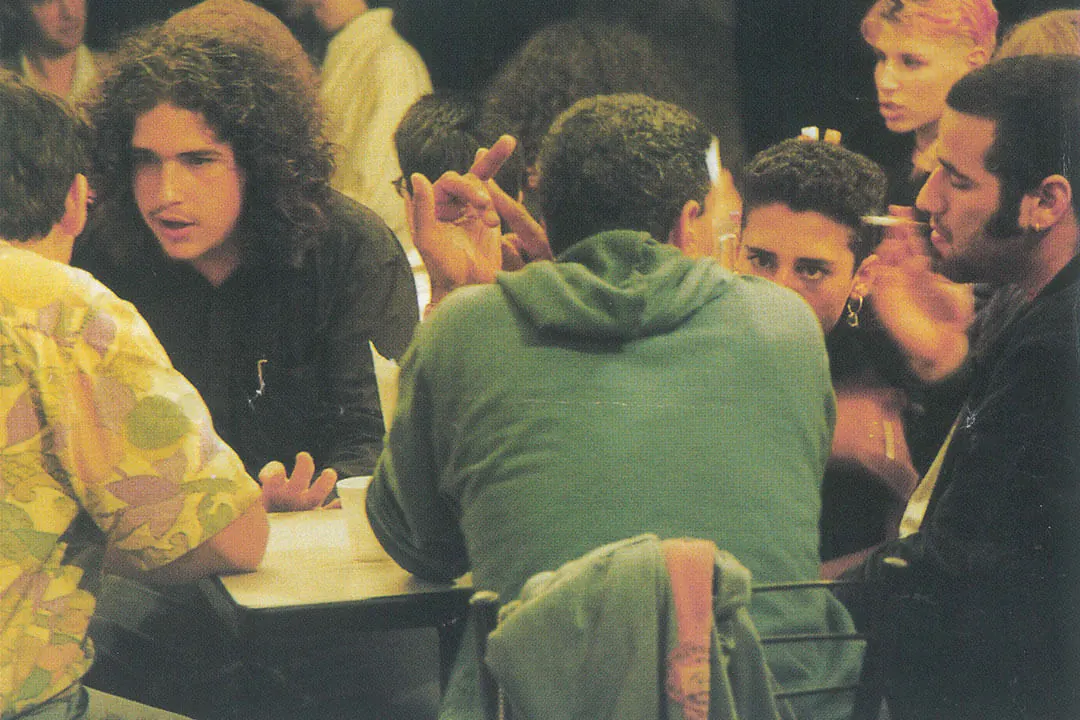
Das Kaffeehaus in Dugit war stundenlang überfüllt mit Israelis, die Fragen zu dem Drama stellten, das sie gerade gesehen hatten.
Zu treffende Entscheidungen
Im Mai 1995 haben wir zusammen mit sieben Gemeinden zwei Aufführungen in Jerusalem unter etwas anderen Umständen durchgeführt. Daß diese Aufführungen überhaupt stattfanden, war ein großes Wunder im feindlichen Jerusalem. Aber wir wussten, dass viele unserer Leser für unsere Konferenzen und die Einsätze gefastet und gebetet hatten.
Die Sicherheitslage im Lande verschlechterte sich. Man wusste nie, wo der nächste Anschlag stattfinden würde. In einem Maoz Israel Report von 1994 schrieb ich: "Die Israelis werden immer verzweifelter, gebrochener und offener für eine Umkehr zu Gott. Es ist an der Zeit." Die Zeit, die die Leiter auf den Führungskonferenzen zusammen verbracht hatten, hatte eine große Einheit entstehen lassen. Jetzt war es an der Zeit, dass diese Straßeneinsätze Früchte trugen.
Im Sommer veranstalteten wir erneut einen dreitägigen Musiktheater-Einsatz im Herzen von Tel Aviv. Sie war sogar noch effektiver als im Jahr zuvor. Aber wir sahen nicht, wie all diese interessierten Menschen - von denen einige wirklich suchten - betreut werden konnten. Wir brauchten eine israelische Gemeinde, die vollständig in hebräischer Sprache arbeitet und darauf ausgerichtet ist, verlorene Israelis zum Glauben zu bringen und dann mit ihnen zu arbeiten, damit sie fest im Wort Gottes verankert und bereit sind, sich selbst zu vermehren. Aber wir hatten uns versprochen, nie wieder eine Gemeinde zu leiten.
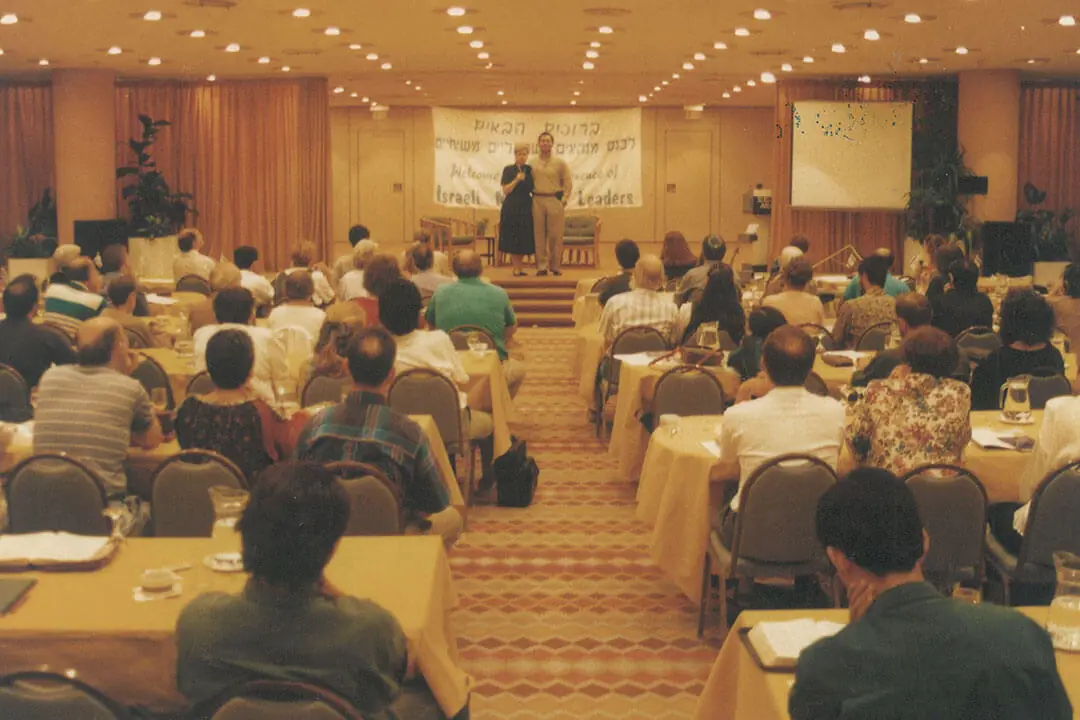
Ari und Shira waren Gastgeber für Jack Hayford bei zwei ihrer nationalen Führungskräftekonferenzen
Ihr seid Pioniere - also seid Pioniere!
Eines Abends saßen Ari und ich in unserem Wohnzimmer. Ich sah ihn an und fragte: "Ari, hast du jemals daran gedacht, eine neue Gemeinde zu gründen?" Er schaute geradeaus und sagte: "Ich habe darüber nachgedacht."
Wir sprachen mit Paul Liberman, einem jahrzehntelangen Freund und Vorstandsmitglied von Maoz. Er war nicht nur Leiter einer messianischen Gemeinde in den USA und später in Israel, sondern auch ein sehr erfolgreicher Geschäftsmann und Stratege.
Er sagte zu uns: "Ihr habt bei einer Reihe von Aufträgen des Herrn Pionierarbeit geleistet. Ihr habt zum Beispiel Pionierarbeit geleistet, indem ihr vielen messianischen Juden geholfen habt, Alija zu machen, obwohl ihr wusstet, dass die Regierung sehr gegen gläubige Einwanderung war.
Du hast israelische Leiter aus dem ganzen Land zusammengebracht, damit sie unter Geistlichen sitzen, die viel Erfahrung und Weisheit haben, um von Gott zu hören. Du hast auch dazu beigetragen, die Einheit unter unseren Pionierleitern, die über das ganze Land verstreut sind, zu fördern, indem du ihnen geholfen hast, sich gegenseitig kennen zu lernen.
Er fuhr fort: "Heute gibt es in Israel Gemeinden in den Sprachen Russisch, Englisch, Äthiopisch, Arabisch und sogar Spanisch. Aber es gibt nur sehr wenige ausschließlich in hebräischer Sprache.
Sie wollten schon immer dazu beitragen, die kulturelle Barriere in Israel zu durchbrechen, dass Juden, die an Jeschua glauben, ein völlig fremdes westliches Phänomen sind. Und ich weiß, dass es immer Ihre größte Leidenschaft war, Sabra (gebürtige) Israelis zu erreichen. Ihre Aufgabe sollte es also sein, eine geisterfüllte hebräischsprachige Gemeinde aufzubauen, die die Gaben des Geistes praktiziert und die biblischen jüdischen Feiertage feiert, so dass neue Gläubige und Suchende, die zu Ihren Gottesdiensten kommen, sich in der Sprache und der Kultur völlig zu Hause fühlen."
Der Elefant im Zimmer
Als Paulus diese Worte zu uns sagte, wussten wir sofort, dass er uns eine Offenbarung gegeben hatte. Ein Realitätscheck. Wir waren es gewohnt, eine Menge Dinge gleichzeitig zu tun. Unsere Herzen dachten ständig über verschiedene Möglichkeiten nach, wie wir Gottes Reich in Israel aufbauen könnten. Aber Paulus leuchtete mit einem Laserstrahl auf unseren tiefsten Wunsch, uns auf den Elefanten im Raum zu konzentrieren! Wir hatten unseren Marschbefehl und unseren Auftrag für das Reich Gottes.
Wir sprachen mit den Pastoren der Gemeinden im Großraum Tel Aviv und ließen sie wissen, dass wir in Ramat HaSharon eine neue Gemeinde nur in hebräischer Sprache gründen wollten, die sich der Evangelisation und der Ausbildung neuer Gläubiger widmen sollte. Sie alle segneten uns und ermutigten uns, damit zu beginnen.
Zusammen mit unserem kleinen Team, Arni und Yonit, und einer weiteren gläubigen Israelin, der Apothekerin Hannah, fand die erste Versammlung der Gemeinde Ramat Hasharon am 24. September 1995 statt, dem Vorabend des Festes der Posaunen, auch bekannt als israelisches Neujahr 5756. Diese Gemeinde sollte später in Tiferet Jeschua (die Herrlichkeit Jeschuas) umbenannt werden.
An dem Tag, an dem unsere Gemeinde geboren wurde, trafen sich der israelische Premierminister Rabin und Arafat in Ägypten und unterzeichneten das Oslo-II-Abkommen, mit dem die israelische Absicht, einen künftigen palästinensischen Staat zu gründen, zum ersten Mal auf dem Papier festgehalten wurde. In den nächsten Monaten sollte sich schnell herausstellen, dass diese Unterzeichnung ein Fehler war.
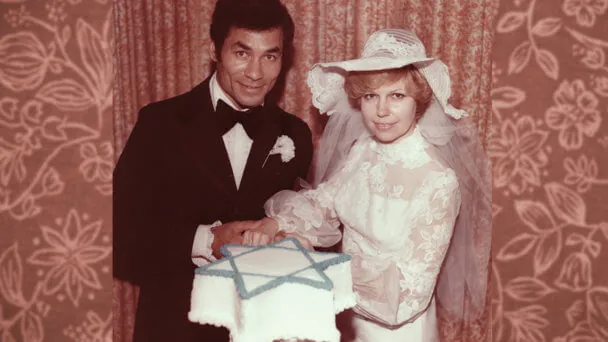
Wie alles begann
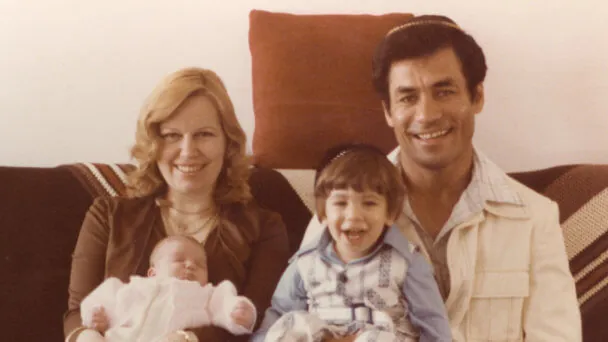
Als Ari Shira traf
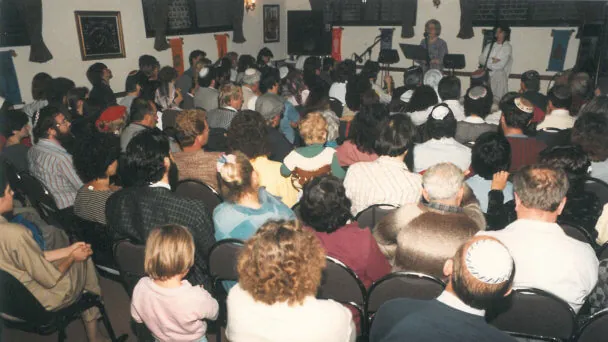
Die erste Gemeinde
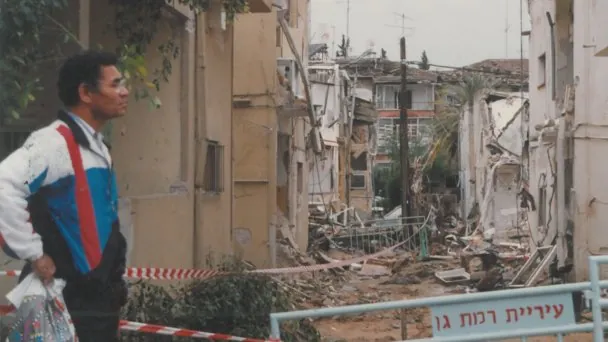
Der Krieg, die Einwanderer und das Ausbildungszentrum
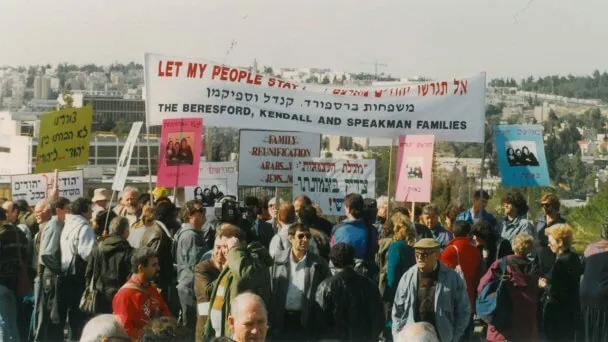
Israels Zweite Untergrundbahn
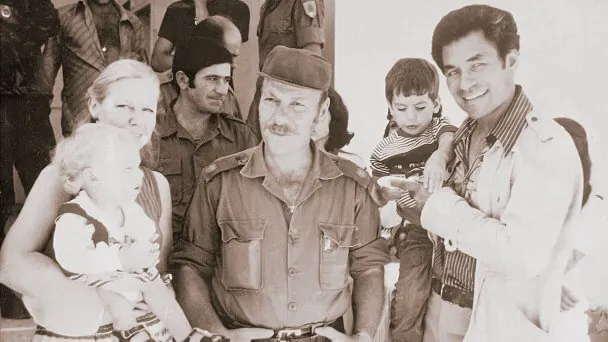
Der Major und der Millionär
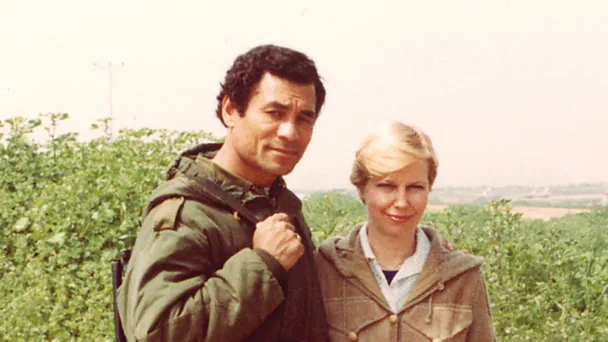
Tagebuch eines israelischen Soldaten

Das Recht zu existieren
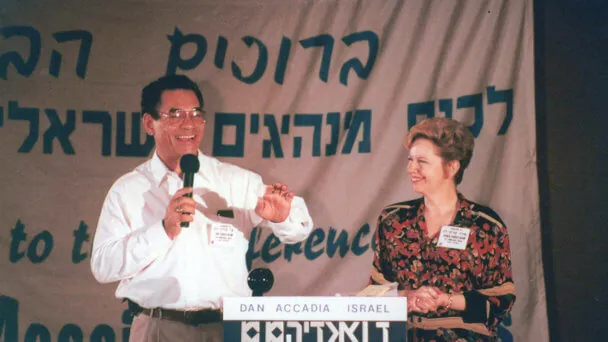
Sag niemals nie
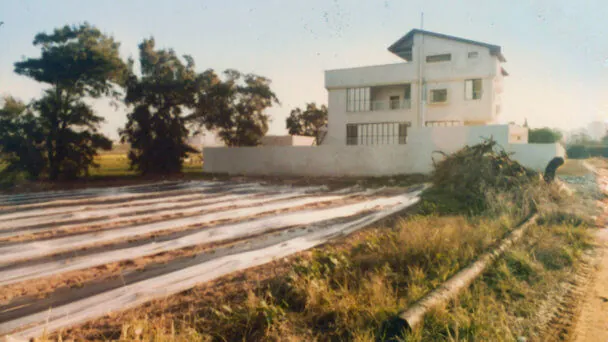
Die Geburt von Tiferet Jeschua
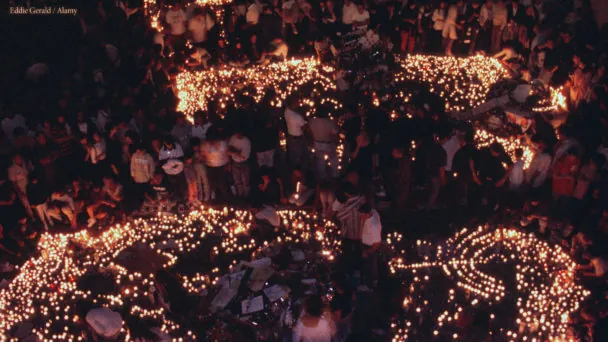
Ein Funke in der Dunkelheit
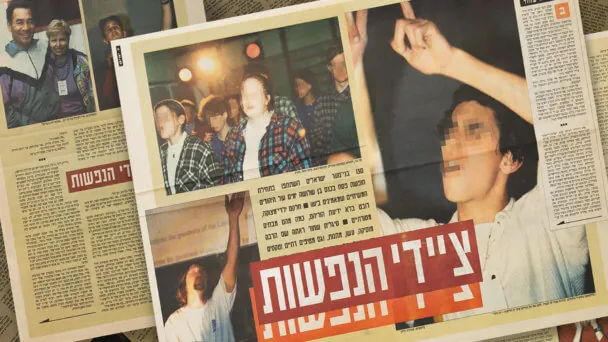
Die Nachrichten & Die Polizei
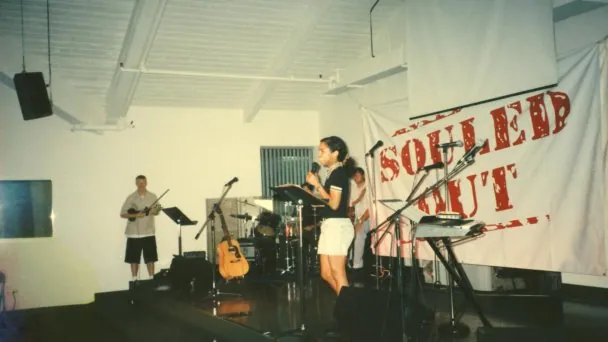
Souled Out kommt nach Israel
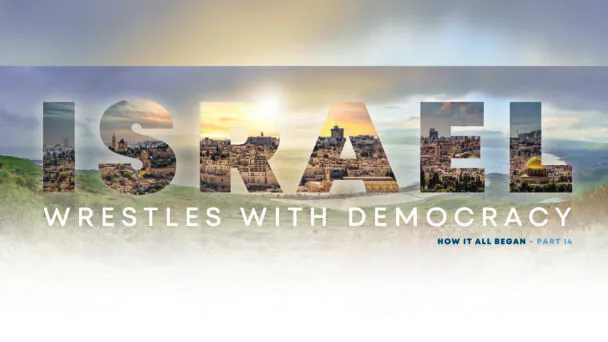
Israel ringt mit der Demokratie
